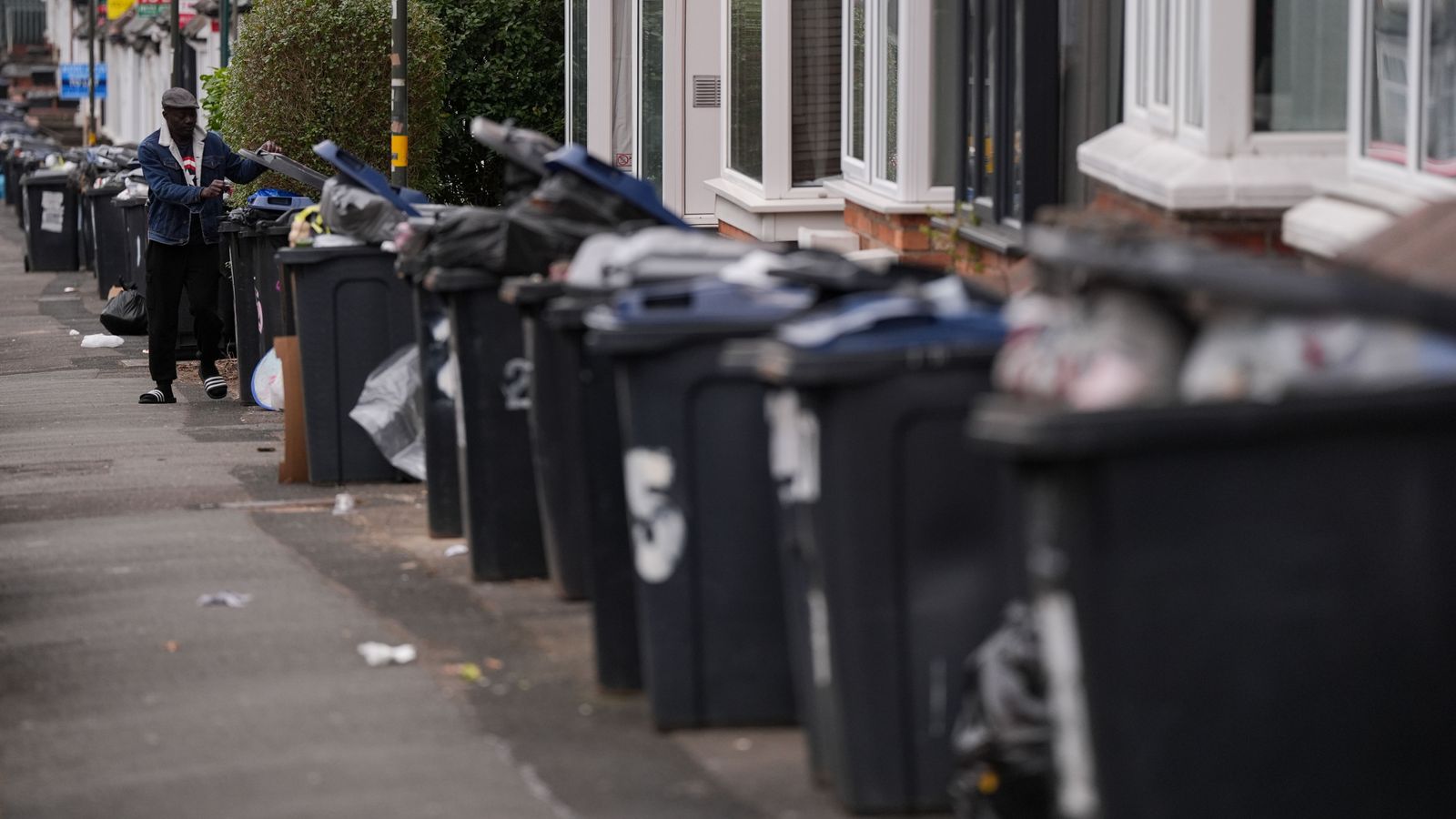
Birmingham Declares Major Incident Over Bin Strike as Rubbish Piles Up
Birmingham is in crisis. The city council has declared a major incident due to the ongoing bin strike, which has left a staggering 17,000 tonnes of uncollected waste piling up on the streets. This isn’t just an eyesore—it’s a growing public health concern. The situation has become so severe that it’s now being discussed in Parliament, with the government closely monitoring developments.
The strike, led by Unite union members, has been ongoing since March 11, with workers protesting against pay cuts and job demotions. The dispute has intensified, with council leaders accusing strikers of blocking depots, preventing collection vehicles from doing their job. In response, Birmingham City Council has taken drastic action, deploying 35 additional vehicles and street-cleaning crews to tackle the mounting waste. However, this has done little to ease residents’ frustration, as many communities continue to be overwhelmed by overflowing bins and growing piles of garbage.
For many in Birmingham, the impact is unbearable. Residents in Small Heath, one of the worst-affected areas, have described the conditions as a “health hazard.” Some say they are forced to keep their windows shut due to the unbearable stench, while others report an increase in rats and vermin. One local even joked that the rats were now “having parties” in the streets—though there’s nothing funny about the deteriorating situation.
Also Read:- Courtois Out Again as Real Madrid Faces Real Sociedad in Copa del Rey Clash
- Justice Department Drops Lawsuit Over Georgia Election Law
Council leader John Cotton has defended the decision to declare a major incident, stating that while the right to strike is respected, actions on the picket lines must remain lawful. He insists that without this emergency measure, the city would not be able to clear the massive backlog of waste or prevent further public health risks. Meanwhile, the government has assured that it is “ready to respond” should local leaders request additional support.
Despite attempts at negotiations, talks between the council and Unite have repeatedly failed. The union claims that restructuring plans will see some refuse workers losing up to £8,000 a year in wages, with others facing demotions and reduced pay. Unite’s general secretary, Sharon Graham, has strongly criticized the council, accusing it of deliberately trying to enforce austerity measures at the cost of workers' livelihoods. She argues that the strike could be resolved quickly if the council abandoned its plans for salary cuts.
On the other hand, the council argues that its restructuring plan is necessary to create a more sustainable and efficient waste collection service. However, with no resolution in sight, residents continue to suffer. Many are taking matters into their own hands, transporting their rubbish to dumps themselves—while those without access to vehicles have little choice but to endure the worsening conditions.
The political fallout has also begun. Conservative leaders have accused the Labour-run council of mishandling the situation and have even suggested bringing in private contractors to break the strike and clean up the streets. Labour, in turn, has criticized the government for not stepping in sooner to provide support.
As the crisis drags on, one thing is clear—Birmingham’s bin strike is no longer just a local issue. It has become a symbol of deeper tensions between workers, councils, and the government. With negotiations stalled and no immediate solution on the horizon, the people of Birmingham are left wondering just how much worse things will get before action is taken to resolve this mess.
Read More:



0 Comments